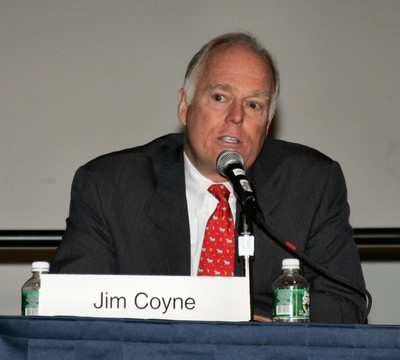Sat, Nov 26, 2005
 NATA has submitted comments critical
of the FAA’s recent notice on certain aircraft lease
agreements known as "wet leases,” because it overemphasizes
the importance of management agreements instead of adopting a more
holistic view of an air carrier’s operational control
system.
NATA has submitted comments critical
of the FAA’s recent notice on certain aircraft lease
agreements known as "wet leases,” because it overemphasizes
the importance of management agreements instead of adopting a more
holistic view of an air carrier’s operational control
system.
The comments point out that much of the information and proposed
guidance outlined in the notice, if followed by FAA inspectors,
creates new unjustified regulatory burdens. Attempting to the
address an apparent lack of understanding by the FAA, NATA's
comments also elaborated on several unique elements of the
on-demand charter industry.
“It is NATA’s belief that this goal [a more
definitive demonstration of operational control in Part 135
operations] can be achieved through current regulations. FAA
enforcement of current regulations and lack of understanding of how
the Part 135 industry operates are the true issues. Certainly,
operational control cannot be determined from one aspect of a
contract, as this notice implies, but must consider each Part 135
air carrier as an entire operational structure,” the comments
state.
“The Wet Lease guidance has morphed from a legitimate
attempt by the FAA to clarify to the industry how to properly
determine operational control into a legal exercise that falls far
short of the goal by placing an inordinate amount of focus on
management agreements rather than proper demonstration and
evaluation of an air carrier’s entire operational control
system.”

The association closed its comments with suggestions to the FAA
for achieving their ultimate goal; increased safety through better
implementation and demonstration of operational control.
“It is imperative that the FAA fully understand the
intricacies of the on-demand air charter industry before they issue
burdensome new requirements which fall far short of addressing the
problem and while proper enforcement of current regulatory
requirements could much better address the true issue of unclear or
improperly delegated operational control,” concluded NATA
President James K. Coyne (pictured, above).
More News
Its Offerings Are Lighter, Cleaner, and Now Pushing Past 1,000nm on SAF Jet Fuel DeltaHawk’s diesel-powered aircraft lineup has seen incredible upgrades over the last few yea>[...]
The Airplane Experienced A Total Loss Of Engine Power On December 3, 2025, about 1600 central standard time, a Mooney Aircraft Corp. M20K, N57229, was substantially damaged when it>[...]
Make Sure You NEVER Miss A New Story From Aero-News Network Do you ever feel like you never see posts from a certain person or page on Facebook or Instagram? Here’s how you c>[...]
Aero Linx: European Society of Aerospace Medicine (ESAM) As a pan-European, independent forum, it works to promote the safety and health of all persons involved in aviation and spa>[...]
“We are excited to see Wisk achieve this milestone, and I’m so proud of the team that made it possible. The team at Wisk has built advanced technologies across flight c>[...]
 Aero-TV: DeltaHawks Diesel Power Steps Into the Spotlight
Aero-TV: DeltaHawks Diesel Power Steps Into the Spotlight NTSB Prelim: Mooney Aircraft Corp. M20K
NTSB Prelim: Mooney Aircraft Corp. M20K ANN FAQ: Turn On Post Notifications
ANN FAQ: Turn On Post Notifications ANN's Daily Aero-Linx (12.20.25)
ANN's Daily Aero-Linx (12.20.25) Aero-News: Quote of the Day (12.20.25)
Aero-News: Quote of the Day (12.20.25)




